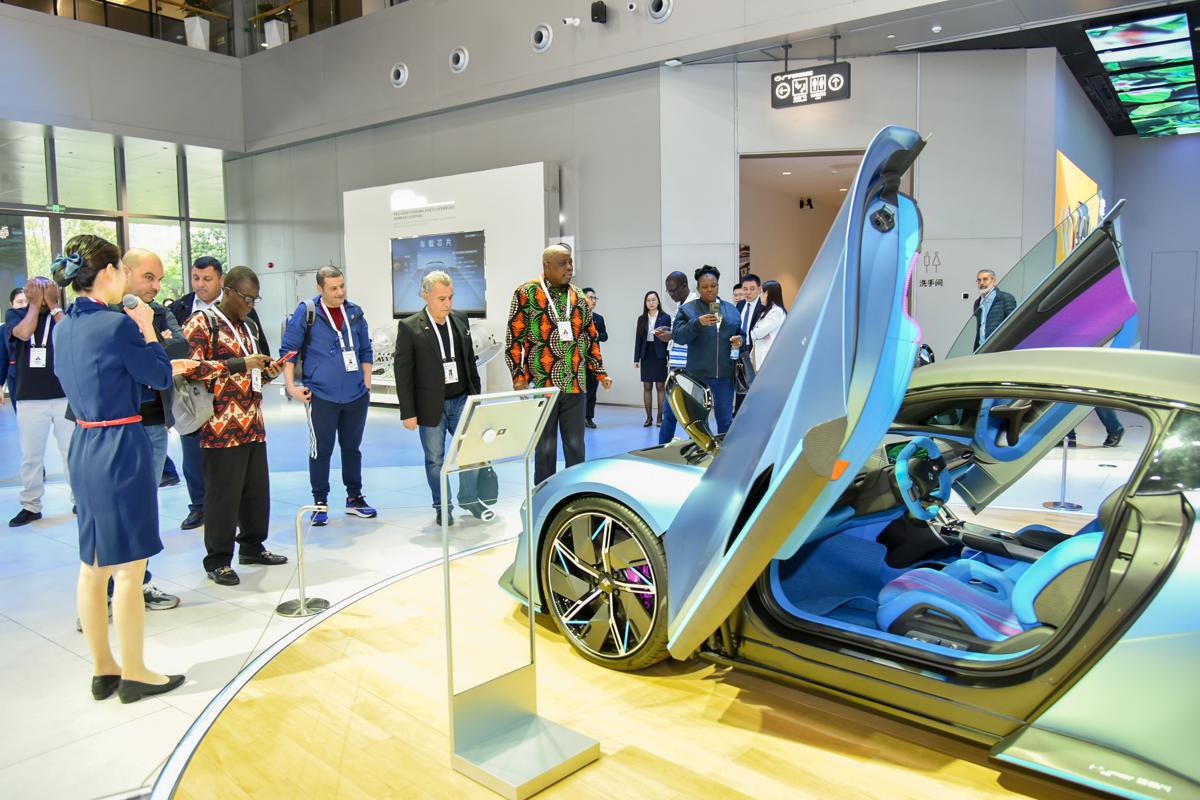Major news agencies focus on ethical use of new tech


International news organizations have been urged to collaborate to develop standards around the use of new technologies, including general artificial intelligence, as they bring both risks and opportunities in a rapidly changing environment, according to stakeholders at a world news summit.
"It's very essential that news organizations collaborate to push for a framework that ensures intellectual property is protected," said Daisy Veerasingham, president and CEO of The Associated Press, while extending her wishes virtually to the opening of the 5th World Media Summit.
The opening ceremony of the summit, which is themed "Boosting Global Confidence, Promoting Media Development", was held on Sunday in Guangzhou, the capital of Guangdong province.
The summit, which runs from Saturday to Friday in the cities of Guangzhou and Kunming, the capital of Yunnan province, has gathered over 450 participants from 101 countries and regions, including representatives of 197 mainstream media outlets, think tanks, government agencies and diplomatic missions to China, and agencies of the United Nations and international organizations.
"Gatherings of the kind benefit all news organizations, so that we can work together to advance the power of factual journalism," Veerasingham said.
Echoing Veerasingham's remarks, Fabrice Fries, chairman and CEO of Agence France-Presse, said in a congratulatory video message that global media cooperation is crucial as media organizations look to innovate and grow in the face of many technological challenges.
Iqbal Surve, chairman of South Africa's Independent Media, envisioned the summit as a platform for practical cooperation agreements to materialize.
"The summit comes at an opportune time and I hope that media organizations will conclude the summit with tangible cooperation to share resources, technology and information," said Surve, while attending the summit.
Fu Hua, executive chairman of the summit and president of Xinhua News Agency, said that establishing a high-level dialogue and cooperation mechanism of leading international wire services within the framework of the summit will help promote mutual development.
"The global media industry is undergoing a significant transformation," Fu said, citing factors such as technological innovation that is reshaping the industry and the dissemination of fake news that is challenging journalistic ethics.
Fu made the remarks on Friday during a meeting with leaders of major international wire services, whose news products reach three-fourths of the global population, to discuss cooperation on tackling tough challenges facing media.
The meeting among leaders of Xinhua, Reuters, AP and AFP, which was held in Beijing, was the first of its kind.
Artificial intelligence and technologies such as the metaverse have had disruptive impact on news production, said Reuters Head of Agency Sue Brooks, while addressing the opening of the world summit on Sunday.
"In the near future, the way we create news may change completely, as well as how people consume news and the relationship between news brands and audiences," Brooks said.
Brooks said she believes that media in general should adapt to these changes as traditional media has been weakened by social media in the past decade.
"Boosting global confidence is indeed a task. We need to establish trust, and we believe that traditional news brands can continue to report facts at all costs," she added.
A consensus was also reached on Sunday, with attending representatives agreeing that global media should actively innovate while adhering to journalistic ethics and professional standards in the face of the rapid development of new technologies in the information age.
Global media organizations should use emerging technologies reasonably to disseminate real, objective, comprehensive and impartial news to audiences, resist fake news, oppose rumors and biases, and uphold media authority and credibility, according to the consensus.



































